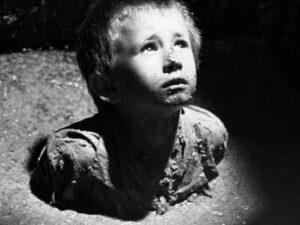From Son of Saul (2015) to Schindler’s List (1993), here are 10 essential Holocaust movies.
The Holocaust should never be forgotten. It was a crucial moment in history that shaped our perceptions of genocide. Movies can play a vital role in preserving that history. Thankfully, there are plenty of films centering around the Holocaust. Here are the best Holocaust films ever made.
10. The Grey Zone (2001)
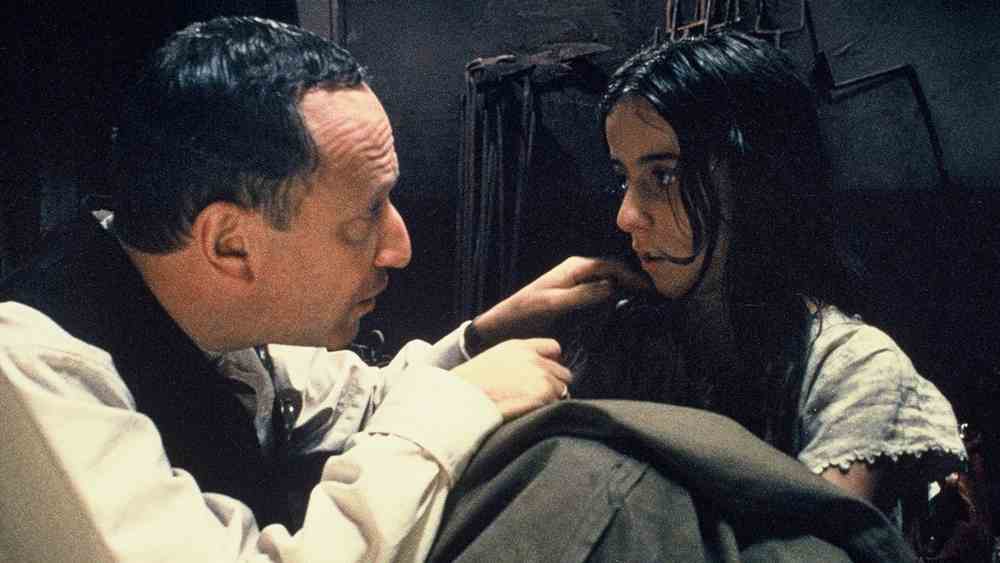
The Grey Zone confronts the uncomfortable subject of the Sonderkommando at the Auschwitz camp. They were a group of Jewish prisoners tasked with helping the Nazis in their most atrocious acts. The Sonderkommando would assist in disposing of the dead prisoners. The complying prisoners would be granted a few more months to live in exchange. During this time, the prisoners conspired to mount an insurrection.
The film was based on a biography by Doctor Miklós Nyiszli. He appears in the film, working for Josef Mengele. His account is important, considering how this uprising went down. Although the Sonderkommando were successful in blowing up Crematorium 4, none of them survived. The final execution is one of the most brutal ways to close out the film.
Directed by Tim Blake Nelson, this is an incredibly bleak film but one of the impotence of rebellion. The Grey Zone is also a cult film, considering how little impact it has left. It received mostly mixed reviews from critics and didn’t even crack a million at the box office. However, The Grey Zone received high praise from some, as it won the 2002 National Board of Review Freedom of Expression Award. Critic Roger Ebert also called it the greatest Holocaust movie ever made. Considering it made Ebert’s Great Movies series, this is one Holocaust film that shouldn’t be passed over.
9. Conspiracy (2001)
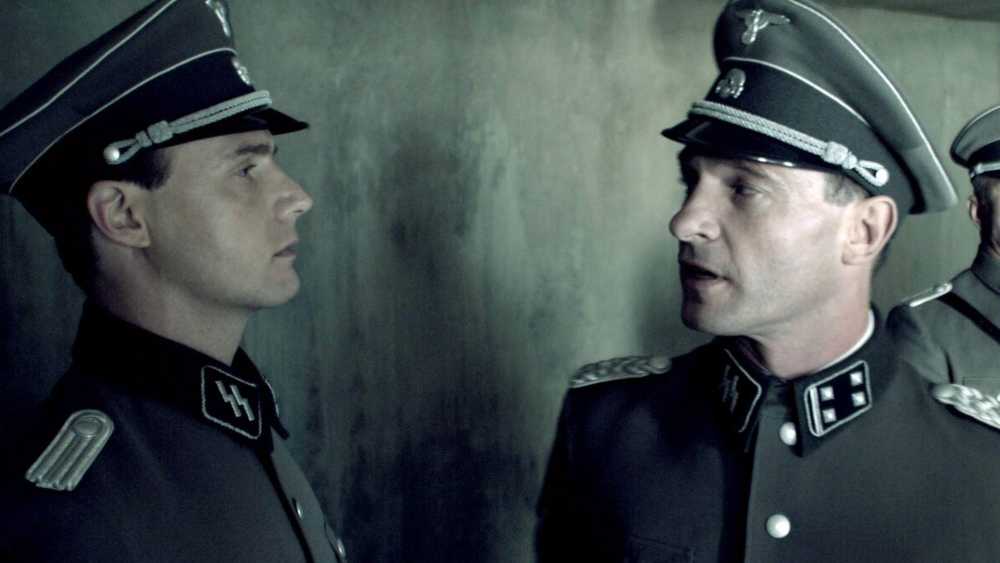
The Wannsee Conference is one of the most monumental events in Holocaust history. This was the 1942 meeting that discussed the Final Solution to the Jewish Question. Conspiracy is a TV movie that attempts to dramatize this event. It’s one of the most important parts of the Holocaust, considering how the Nazis tried to cover it up. Only one transcript survived from that fateful conference. The rest of the evidence was disposed of after the meeting.
Although a TV movie, Conspiracy boasts a powerful cast – Kenneth Branagh, Stanley Tucci, Colin Firth. But what’s even more stunning is the daringness in depicting this Holocaust event. Several historians, including Holocaust historian Christopher Browning, were tapped for this adaptation. That’s an important aspect, as this lost bit of history requires some dramatization.
Despite some historical inaccuracies, the thematic approach is bold and cinematic. James Rampton from The Independent described the film as a picture of how evil prospers when good men do nothing. The TV movie received several awards for its stunning recount, including an Emmy and Peabody Award.
8. The Counterfeiters (2007)
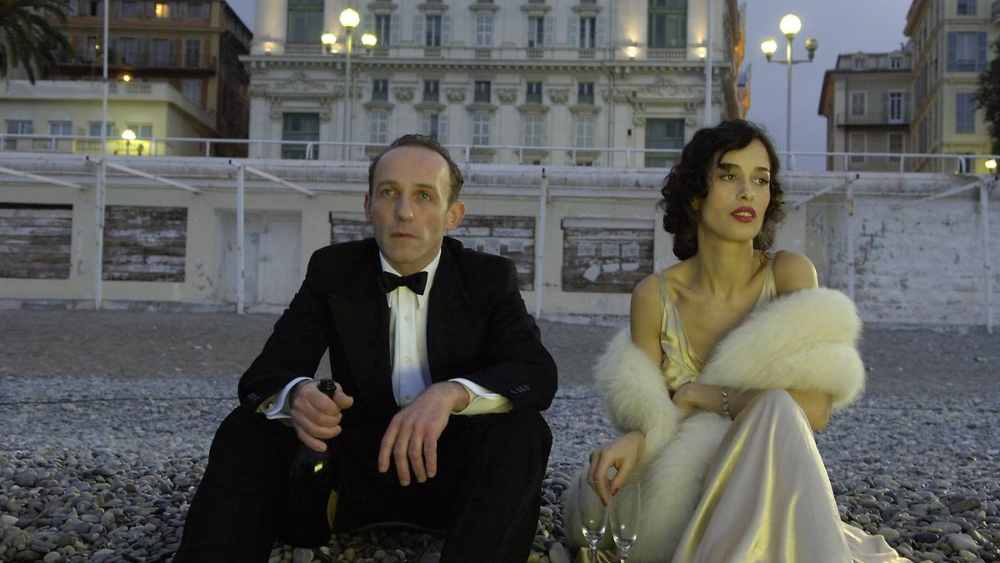
Stefan Ruzowitzky’s The Counterfeiters portrays how morality fades in times of war. This is the case of Salomon Sorowitsch, a man known for forgery. His counterfeiting of money and passports gets him arrested. However, it’s that very act that keeps him alive when he’s transferred to the concentration camps. In particular, his painting skills earn him special privileges among the Nazis. Salomon ends up working alongside other prisoners who are skilled at counterfeiting techniques.
The moral questioning is present throughout. On one hand, Salomon’s skills keep him alive. On the other, his money forgery is only aiding the Nazis. There is always a fear of being discarded for no longer being valid. Eventually, the film approaches the tougher question: When the revolution comes, will those forced to aid the Nazis be spared?
Winner of the Academy Award for Best Foreign Language Film, The Counterfeiters offers a unique perspective on the Holocaust. There’s a more profound sense of morality and questioning of greed in the film. The ultimate thesis seems to be more about life over money. By the film’s end, Salomon has gambled away all the forged money he made for the Nazis. But as he later relays to a woman, he can make more. Money comes and goes, but life is more precious than riches.
7. Life is Beautiful (1997)
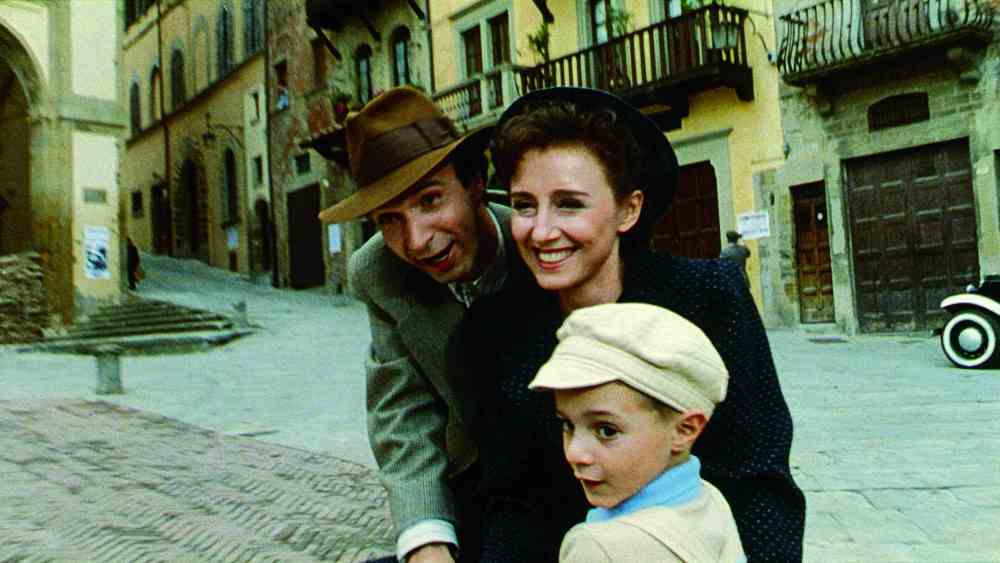
A Holocaust film with a comedic actor at the helm is a gamble. Life is Beautiful walks that delicate line with Roberto Benigni directing and starring. Benigni plays Guido, an Italian-Jewish father who tries to make life more amusing for his young son, Giosuè. That task becomes more challenging when they’re sent to a concentration camp. But Guido is up to the challenge. His son cannot translate German, giving Guido the perfect opportunity to construct a less fearful scenario.
Guido tells his son that the camp is not a prison but a game. He tells him that the many jobs of the camp earn you points. If Giosuè complies, he could win a tank. Through it all, Guido attempts to keep in contact with his wife, Dora, inside the camp. The three narrowly avoid being exterminated as they struggle to stick together.
Although charming, Life is Beautiful never downplays the atrocity. There is always danger present in how the Nazis round up Guido’s family. But there is always an innocence that Guido tries to preserve, bolstered by Benigni’s performance. The film is still loaded with tragedy but also hope and sweetness. With its life-affirming themes, Life is Beautiful won the Academy Award for Best Foreign Language Film and Best Actor.
6. Sophie’s Choice (1982)
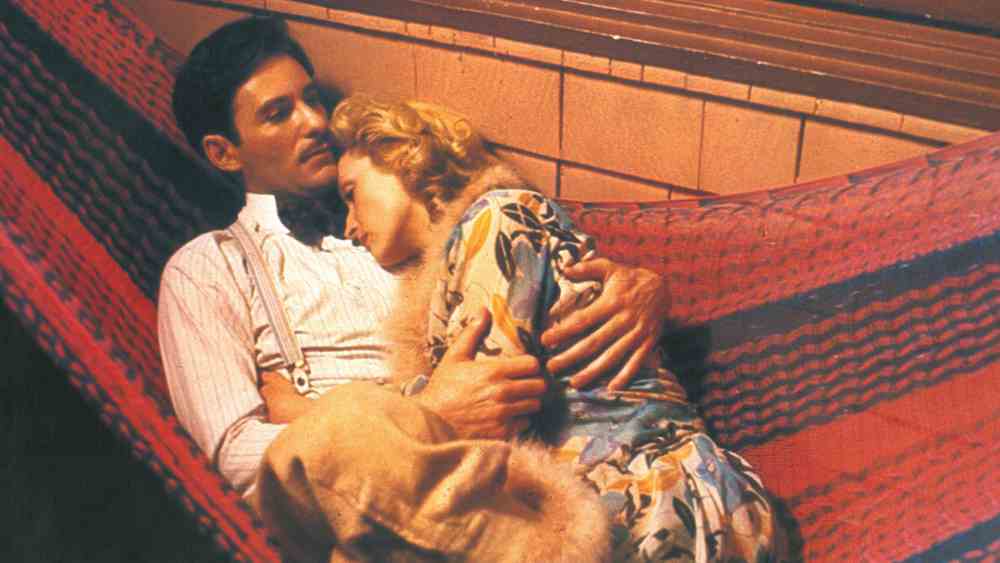
Based on William Styron’s 1979 novel, Sophie’s Choice is all about the lingering trauma of the Holocaust. It centers around the Polish immigrant Zofia “Sophie” Zawistowska, expertly played by Meryl Streep. Living at a boarding house in 1947 Brooklyn, Sophie has a hidden secret. The young writer Stingo, played by Peter MacNicol, soon learns she’s a Holocaust survivor. The two grow closer, but their relationship is complicated by Sophie’s mentally unstable husband, Nathan, played by Kevin Kline in his debut film role.
The film’s title is based on more than Sophie’s choice of men. As she later reveals, she had to choose which one of her children would be sent to the gas chamber. It’s an aspect of the Holocaust that continues to haunt her, leading to a tragic end.
Sophie’s Choice is perhaps most notable for one of Streep’s finest performances. But it holds a greater appeal for how ghosts of the Holocaust linger for survivors. The pains of the past are stirred into the problems of the present. For such dramatic staging, Sophie’s Choice is an essential film about the Holocaust on a psychological level.
5. The Last Stage (1948)
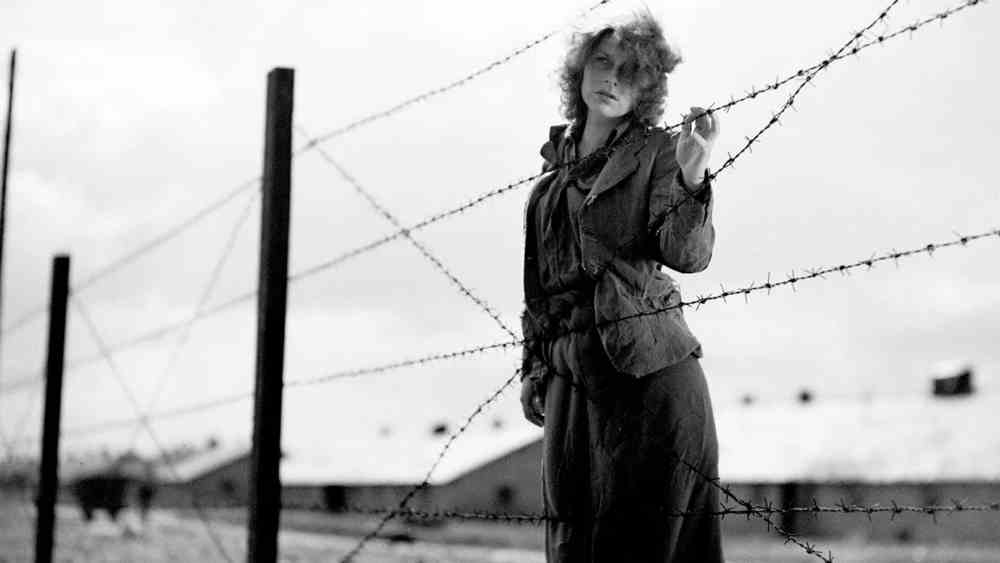
Wanda Jakubowska’s The Last Stage is notable as one of the earliest films about the Holocaust. The Polish film follows Martha Weiss, an interpreter sent to the Auschwitz concentration camp. Her entire Polish-Jewish family is exterminated while she is spared for her expertise. As a translator, she soon learns of the horrors women face in these camps.
For debuting so soon after the Holocaust, there’s a frank realism to how it’s depicted. This is because Wanda was a camp survivor. The idea of filming this topic occurred to her when she left the camp. Seeing the film as her duty in relaying history, The Last Stage doesn’t hold anything back.
The film is fitting as an account but equally entertaining. With its complex characters and engrossing narrative, the story is as compelling as the message. The Last Stage has been called the mother of all Holocaust films, especially for how it inspired future portrayals.
4. Son of Saul (2015)
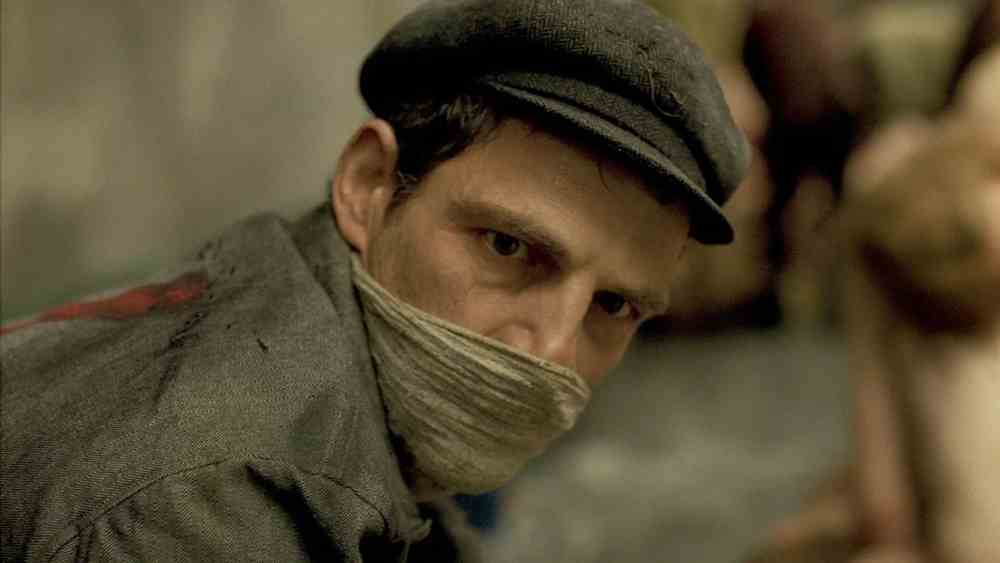
The Sonderkommando is once more explored in Son of Saul. In this film, however, there’s a more personal story. Among the Jews forced to work in the Nazi camps, Saul Ausländer has become uncomfortably stoic with his work of exterminating Jews. That all changes when he witnesses the murder of a Jewish child. His new mission is getting a proper Jewish burial for this unfortunate kid.
Directed by László Nemes, this Hungarian picture is a brutal experience. It never makes the Holocaust a broad tragedy, focusing on a meaningful act over two days. The recreation of the camp is uncompromising in the horror and tragedy.
For being such an emotionally powerful movie, Son of Saul received high praise after its debut at the Cannes Film Festival. It would also win the Best Foreign Language Film award at the 88th Academy Awards, only the second Hungarian film to do so. Free of melodrama, Son of Saul locks you into its somber nature and never lets go.
3. The Zone of Interest (2023)

There are plenty of Holocaust films that showcase the inhumanity with explicit imagery. The Zone of Interest is more compelling for what it doesn’t show. The film takes the perspective of a Nazi family living just outside a concentration camp.
The head of the house is Rudolf Höss, a commandant of the camp next door. He knows the true horrors that go down when he’s at work, but the audience never witnesses it. All we hear is what the family hears. Their day-to-day lives are filled with the popping of guns, the shouting of guards, and the fires of the furnaces.
What makes Zone of Interest so captivating is that it challenges the audience. How likely are we to assume the horrors of the Holocaust when it is not shown? Director Jonathan Glazer ensures that we’re never given an easy moment.
Every scene that feels like Höss’s family learns the truth is concealed. The kids think little of the horrific sounds, almost mutable by the distance. The wife is more concerned about her husband being transferred and having to leave her idyllic home. Those who recognize the inhumanity remain in the shadows. This comes in the form of the shocked grandmother and the Polish girl who secretly hides food for prisoners.
Glazer’s film grounds the Nazis in an evil that seems more real than mystical. The Nazi family enjoying the luxuries of their home paid for by slaughtering Jews seem like mundane people. They have parties in the garden, and children play with toys. They either don’t realize the horror or don’t care. Why should they care? They never see anything.
The film also has an incredibly sobering ending as the film jumps to the present. Rather than showing the horrors inside the camp, we all get the museum crafted from the aftermath. There’s never a moment where the mind isn’t thinking about the atrocities because we’re never exposed to the graphic genocide. It’s a brilliant reminder about how genocides can often proceed when it isn’t affecting you. The Zone of Interest is profoundly moving for this direction, making it an easy winner for the Academy Award for Best International Feature.
2. The Pianist (2002)
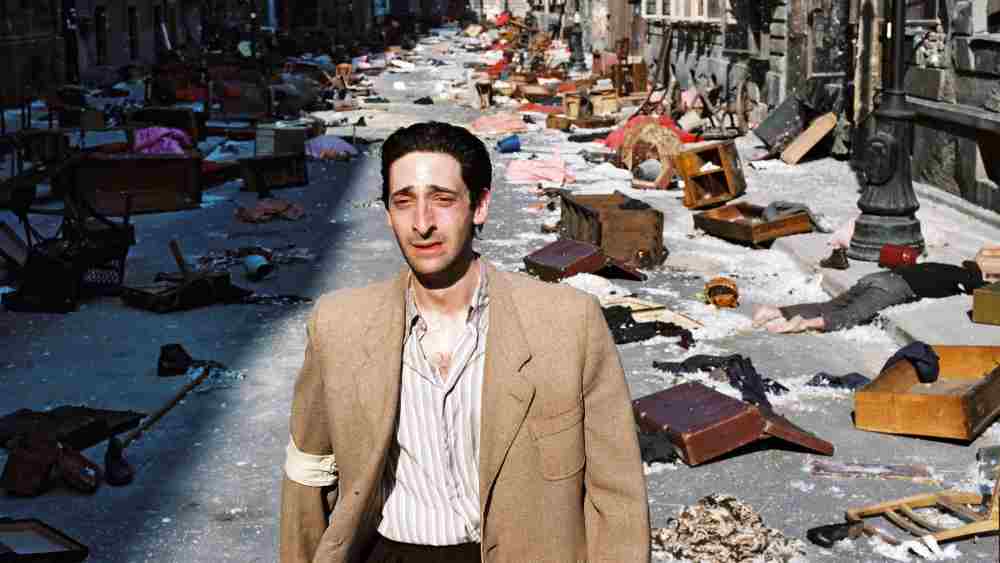
Based on the memoir of the same title, The Pianist follows the tragedies of composer Władysław Szpilman. Portrayed by Adrien Brody, Szpilman plays piano in 1939 Warsaw when the war comes knocking. With the Nazis bombing and war declared, Władysław’s life is made worse for his family. He is forced into the Warsaw Ghetto and later to the Treblinka extermination camp. When separated from his family, Szpilman struggles to survive the Holocaust. He is pitied by Captain Wilm Hosenfeld, a Nazi who protects Szpilman for his piano skills.
Similar to The Last Stage, director Roman Polanski drew from personal experience with the Holocaust. He also escaped into the ghetto and hid during the war. Drawing from real life, Polanski’s film brilliantly mixes the horrors of war with the power of art. Adrien Brody, who won an Academy Award for his role, expertly communicates that sensation of despair and tragedy.
Although the film is packed with great drama, it never feels forced. The film is powerful in how the audience can resonate with Władysław’s journey. The inhumanity of the Holocaust is explored, as well as the importance of music. Władysław only survived because of his piano skills while the rest of his family perished. It’s a bitter perspective on how people were only spared for their usefulness during this shameful historical moment.
1. Schindler’s List (1993)
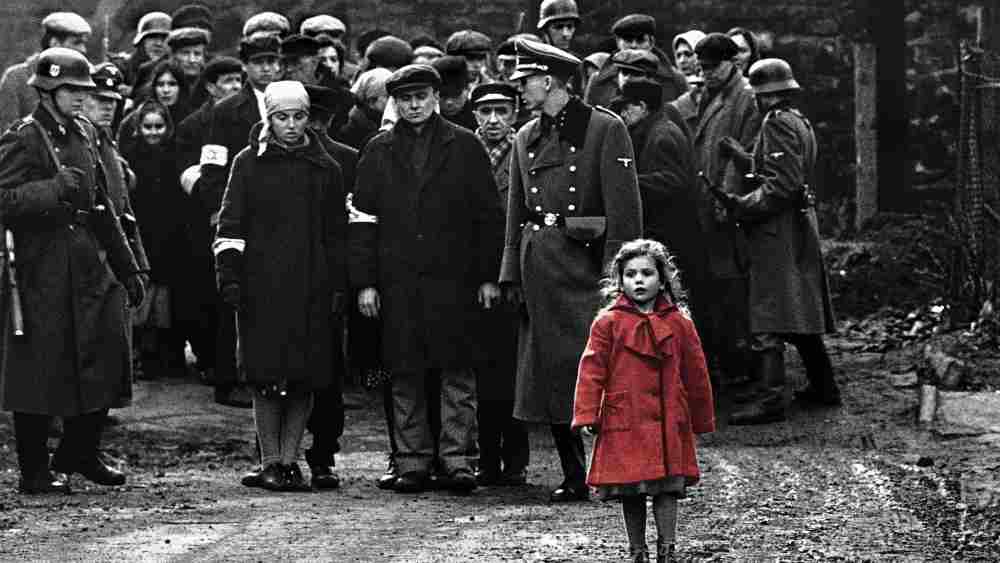
Steven Spielberg’s Holocaust film is nothing short of a masterpiece. The film centers on the German industrialist Oskar Schindler, considered a hero for his efforts during the Holocaust. As Jews were being rounded up and exterminated, Schindler kept Polish–Jewish refugees out of concentration camps by employing them in his factories. Over a thousand lives were saved as Schindler bargained with Second Lieutenant Amon Göth. He saved many, but, as Schindler tearfully remarks, he could have saved more.
Spielberg was reluctant to make this film as he didn’t feel mature enough for the subject. After all, Spielberg was mainly known for charming blockbusters like Raiders of the Lost Ark and E.T.. Still, Spielberg took on directing duties when other directors, including Sydney Pollack and Martin Scorsese, refused to take this material off his hands. He was precisely the right choice. His film greatly emphasized the topic, and his name helped spread Schindler’s story far and wide. It was very much what the director aspired towards. His primary motivation was the rise of Holocaust deniers and neo-nazis—a film this important needed to be made.
There’s a lot to admire about the film, including the cast of Liam Neeson, Ben Kingsley, and Ralph Fiennes. The film is shot in black-and-white, making it more like a documentary of the era. The one stroke of color in the movie comes from a little girl. Schindler notices this girl in a crowd. Later, we see her among the dead. The sharp contrast makes the inhumanity of the genocide hit so hard. Just as powerful is John Williams’ unforgettable score, aided by violinist Itzhak Perlman.
It’d be easy to declare Schindler’s List the best film because of its popularity. It impressed critics, won numerous awards, and was a box office success, bringing in over $300 million. But it’s worthy of all of that. The film not only represents the atrocities of the Holocaust but also the importance of preserving Jewish culture. For being such a richly symbolic and historically poignant picture, Schindler’s List is one of the best Holocaust movies.

